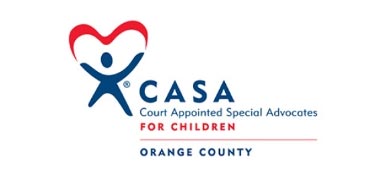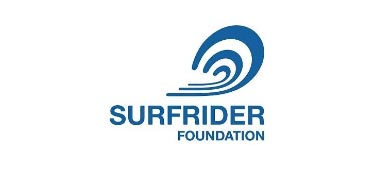
Within the past decade, the level of automation in our everyday lives has increased at an exponential pace. From ordering lunch online to applying for a mortgage, we can seemingly do more with minimal human interaction with each passing day. No matter what the task may be, it seems as though “there’s an app for that”.
The automation craze is now extending into professional services traditionally performed by… well, by professionals. With the lure of lower costs and increased convenience, tasks like drafting legal documents can now be performed by pre-programmed artificial intelligence. Sounds perfect, right?
Very Wrong.
Just because you theoretically can prepare a legal document by filling in some blanks on a website or app, it doesn’t mean the idea is a prudent one. In fact, removing the critical thinking aspect of creating legal documents is a much riskier proposition than most people realize. The potential pitfalls of trying to bypass an experienced lawyer far outweigh the minimal benefits. When the dust settles, your attempt to save a few dollars by cutting corners could end up costing you much more than you ever anticipated. Simply put, an automated process without advise or quality assurance controls may be better than nothing, but it may very well frustrate the intended purpose because so many erroneous assumptions are made. The end result, more time and money is spent and your goals may not be met.
Estate planning is one of the most dangerous (and most common) areas of law where people try the DIY approach. There are several reasons for this trend, including:
- An estate planning document such as your last will and testament usually does not require filing or “inspection” with the court or any other third party which approves the work.
- Significant misinformation about the law often prevents people from making informed decisions about the best way to handle estate planning.
- Many people, especially senior citizens, are extremely guarded about their assets, leading them to attempt to handle their own estate planning rather than disclosing personal information to anyone, including close family members or a lawyer.
- A lack of knowledge about the cost/benefit of a will or probate versus a trust or other asset transfer vehicles.
The critical fact that many people fail to understand regarding estate planning is if something goes wrong or controversy arises, you won’t be there to set the record straight because you’ll be dead. And wouldn’t you know it? Not only will everyone be fighting for what they believe is right, but that interpretation will miraculously result in everyone claiming you agreed with the view that benefits them over everyone else. This happens with alarming regularity and many trust litigation careers are built on this reliable algorithm. Beyond this worst case scenario is another common result of sloppy, incomplete or unintelligible documents, which is the outright invalidity of the documents causing all assets to be probated or the need to go to court to seek an order as to the correct way to handle the problematic language.
In the event of any question of interpretation or intent when a lawyer has assisted the client, an attorney can testify in court as to the testators intent or as to their own intent with the drafting of the document; a form generated by a website cannot. When called for, lawyers can also videotape signings, seek doctors support of a client’s capacity at the time of signing, employ delayed distribution to beneficiaries through drafting, and many more tools in our estate planning professional tool chest. Remember, the attorney-client relationship continues even after the client dies, creating an ethical obligation for the lawyer to protect the client’s interest even in death. Under most circumstances, your lawyer is your advocate, and a court will usually grant substantial weight to his or her testimony in the event of a legal challenge to your will or other estate planning documents.
Even if you hire an attorney, there are other factors to consider. A primary consideration when choosing an attorney to assist you with your estate planning should be the age of the attorney relative to your beneficiaries. Some people are more prone to select an older attorney with the thought being they want someone with more experience to help craft their estate plan, which is a perfectly valid train of thought. In this particular situation, however, you should consider the practicalities involved.
Generally speaking, your estate planning documents will not be an active/enforceable document until you pass away because it is revocable at any time. If you hire someone who will likely be retired (or worse), you lose the ability to have your attorney actively involved in any dispute as to your mental competency and state of mind or any other vital factors the court could use to ensure the administration of your estate per your wishes. If you do have an aging out attorney, that is okay, just make sure you like their younger partners so they can transition into the role at a later date.
Another reason to hire a licensed attorney as compared to a paralegal or document preparer for your estate planning is continuity and because they have malpractice insurance if there was ever a mistake of the lawyers making.
We recommend retaining an attorney who focuses on Probate and Trust law rather than a general practitioner, that way years of their collective planning experience can be brought to the table when you are brainstorming how best to leave your assets and care for yourself as you age. Some good planning can go a long way in avoiding the court system altogether as well as minimize tax for you and your beneficiaries. Lawyers are obligated to maintain records, and many lawyers go above and beyond these requirements just in case any issues arise down the road. Also, if your lawyer retires, relocates, or suddenly passes away, there will almost certainly be processes in place to make sure you have someone to contact if necessary.
For most people, their estate plan is a thoroughly considered final declaration of intentions designed to reward beloved family and friends with prized keepsakes, valuable assets, or both. Given the importance of your estate plan, doing your homework and making informed decisions are common-sense steps you should take before deciding who you trust to professionally and satisfactorily carry out your wishes.
Disclaimer: This article is intended to provide a general summary of laws in the State of California and should not be construed as a legal opinion nor a complete legal analysis of the subject matter. Noelle Minto is an attorney at NM Law, APC in Tustin, California, a law firm specializing in Trusts & Estates and Business Transactions.
Testimonials
Charities We Support
We dedicate pro bono time, volunteer services, and a percentage of our gross revenue to these organizations. In 2023, we sponsored a refugee family of five to come to the United States and start a new life.
Each year our law firm decides as a group which charities to assist with our time, money, and expertise. Please feel free to click on any of the charities below and make a donation of your own.


















